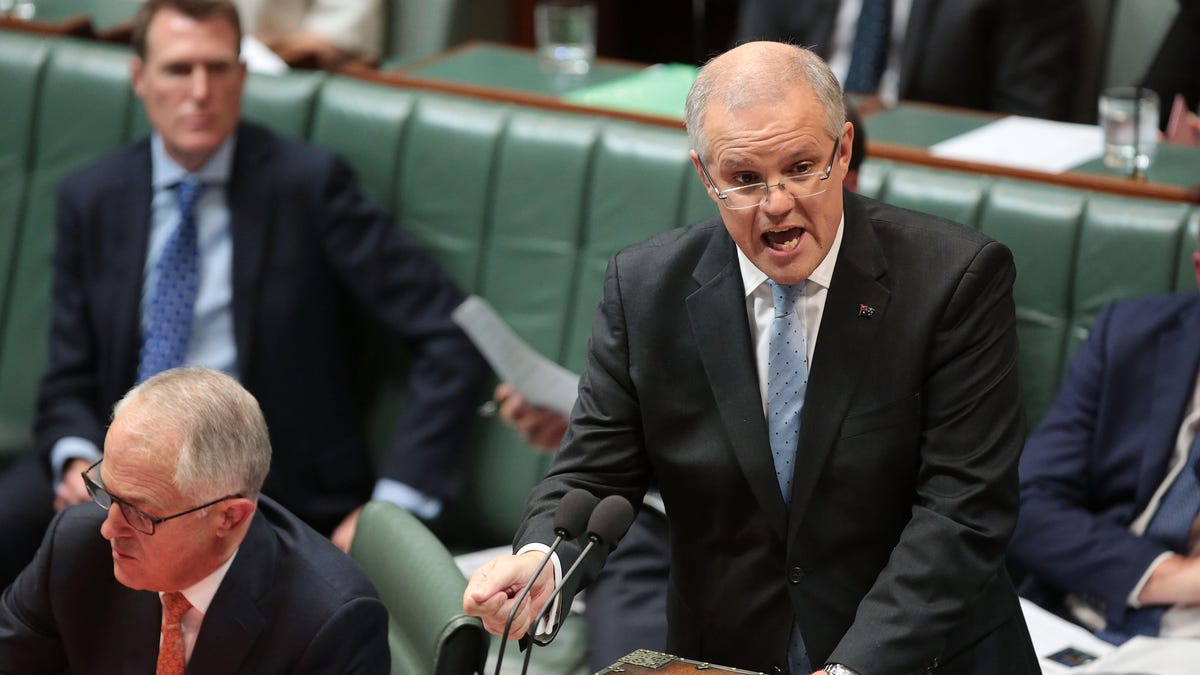2018 Australian Budget: What it means for science and tech
Australia is officially getting its own space station! But we're also ditching renewable energy targets. This budget is a rollercoaster.

Treasurer Scott Morrison.
Budget night is always full of talk about hard-working families, Aussie battlers and boosting the "kitchen table budget" for Australians (yes, that was a real phrase from Treasurer Scott Morrison).
But amid the talk of tax cuts, belt tightening and good news, there were plenty of policy announcements for Australia's science and technology space.
To start off with a brief moment of levity, here's the most important takeaway: AU$700,000 is being devoted to figuring out the arcane truths of the blockchain. Tip: It's in the computer.
But more seriously, science was the word of the night. Here are the winners and losers.
Space science!
The government will spend AU$41 million on the space industry, including AU$26 million (over four years) to start a National Space Agency and AU$15 million (over three years) to establish the International Space Investment project, which will provide grants to space projects. Previous reports indicated the government would allocate AU$50 million to seed-fund the space agency, with the private sector expected to provide the rest.
There's been a lot of excitement around the next space race, particularly the idea of lower-cost and commercial space travel, and governments are increasingly looking at how to get in on the action. Other developed countries, including New Zealand, already have space agencies.
The space industry is worth around $340 billion a year, the government said, and it wants in.
Supercomputer science!
The investment in a space agency is part of the AU$2.4 billion that Treasurer Scott Morrison's budget allocates to science. "This includes supercomputers, world-class satellite imagery, more accurate GPS across Australia, upgrading the Bureau of Meteorology's technology platform, a national space agency and leading research in artificial intelligence," the Budget read.
AU$393.3 million will be spent over five years on national science and research infrastructure centres, facilities the budget called the "foundation of our innovation system." This includes AU$140 million towards supercomputing, double the previous budget's AU$70 million commitment. Meanwhile, AU$29.9 million will be invested over four years in AI and machine learning, with hopes to spike innovation across cybersecurity, health, energy, mining and agriculture industries.
STEM science!
The government's budget also hopes to even out the STEM diversity gap. AU$4.5 million will be spent over four years on the Women in Science Strategy, a "decadal plan for women in science, to provide a roadmap for sustained increases in women's STEM participation." This includes a Women in Science Ambassador to "encourage girls' participation in STEM subject."
Environmental science!
There was some good news for the environment with the government committing AU$35.7 million over four years (from 2018-19) to support Australia's Antarctic science program.
Climate change also received a nod (of sorts) in the budget papers, with the government allocating AU$443.8 million to invest in research on coral reef restoration and to build the Great Barrier Reef's resilience to bleaching and extreme weather.
But with the consumption of fossil fuels one of the leading contributors to increased carbon emissions and climate change, the budget's view on renewable energy policy was a different picture.
And... then there's renewable science
While the government leaned into some scientific affairs, it put the screws to others. Labor's Renewable Energy Target (RET), which sought to commit Australia to reach 50 percent renewable energy by 2030, has been scrapped due to the cost it put on consumers.
"We will not adopt the 50 percent renewable energy target demanded by the Opposition that will also only put electricity prices up," Morrison said in his budget speech. "All energy sources and technologies should support themselves without taxpayer subsidies. The current subsidy scheme will be phased out from 2020."
Instead, the government committed AU$37.6 million "to improve energy affordability, reliability and sustainability" including improving the functioning of the gas market and implementing recommendations from last year's Finkel Review into the electricity market to enable better planning and "help consumers get better energy deals."
CNET Magazine: Check out a sample of the stories in CNET's newsstand edition.
Rebooting the Reef: CNET dives deep into how tech can help save Australia's Great Barrier Reef.



